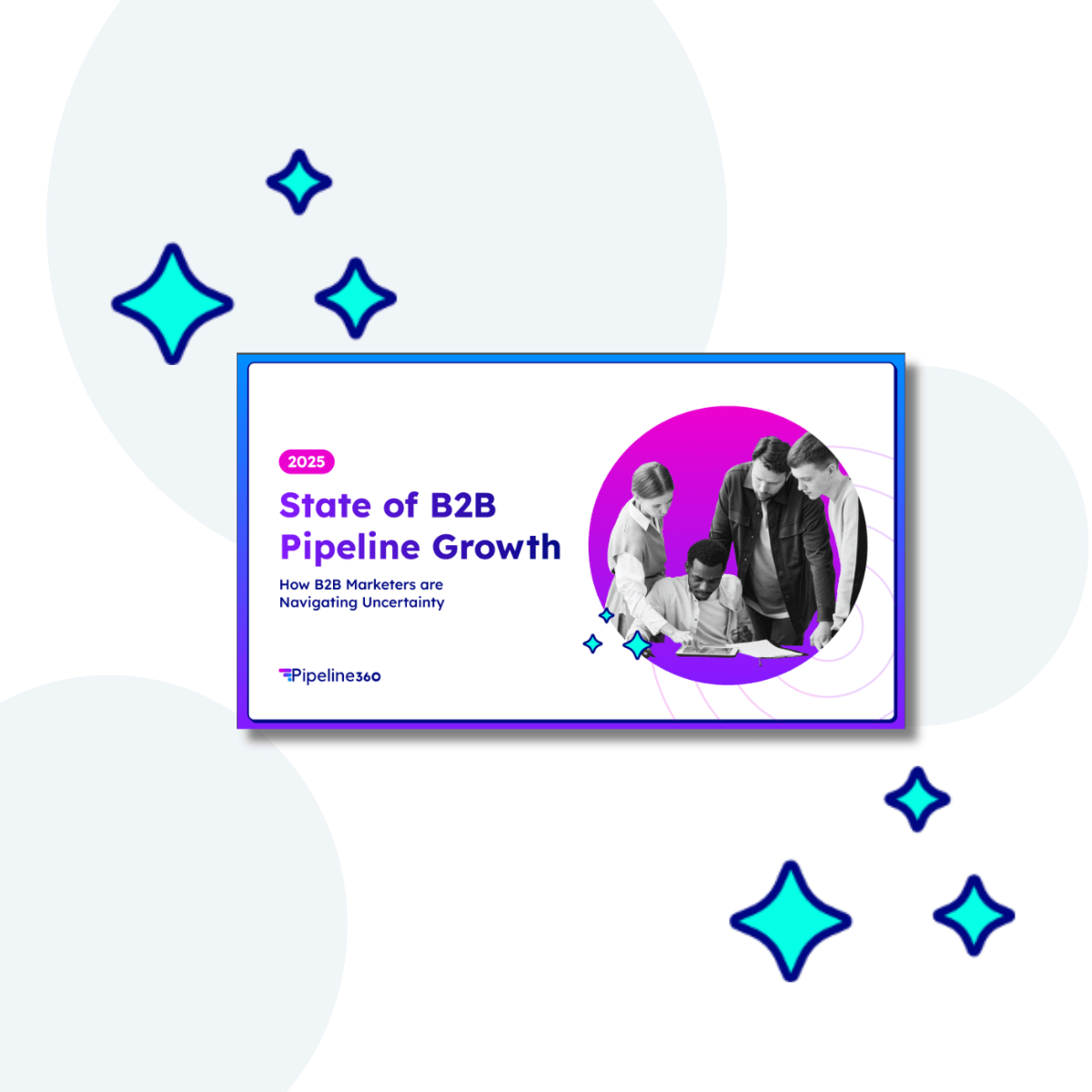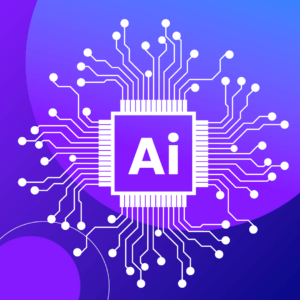Why B2B Content Marketing Still Matters
In recent years, the once simple, linear B2B buyer journey has become complex and tangled. Buying groups often number up to ten-to-twenty stakeholders, sales cycles stretch four-to-six months longer, and prospects drift in and out of the funnel unpredictably. In this environment, the classic lead-gen tactics long used in B2B content marketing fall short.
That’s why top-performing marketing teams have moved beyond narrow KPIs, embracing a broader B2B content strategy that identifies, engages, and nurtures buyers across multiple touchpoints, exactly as we found in our 2025 State of B2B Pipeline Growth report.
According to our research, email marketing (66%), paid social (58%), paid search (50%), SEO (47%), and events/webinars (45%) remain the most-used channels for generating leads. Content clearly remains the undisputed king of B2B content marketing. Indeed, today’s buyers consume three to seven pieces of content before reaching out.
But if buyers are consuming more content than ever, it’s also true that only a small portion of this content actually drives engagement, conversion, or purchase. Although some 71% of buyers engage with B2B content before ever speaking to sales, just 29% of marketers rate their content as “very effective.”
B2B content marketing strategies must adapt to take account of this complex, non-linear landscape, recognizing that good B2B content drives demand, builds trust, and accelerates pipeline. The teams that treat content this way are invariably ahead of their peers.
However, that’s not to say that content marketing for B2B is not without its challenges.
The Challenges Facing Modern B2B Marketers
B2B marketers today face a seemingly endless barrage of disruption that’s forcing a reset in B2B content strategy.
1. The double-edged sword of GenAI
Generative AI (GenAI) is shifting content creation and ad copy to the top of the priority list. According to our research, 36% of marketers cite content creation and 28% ad copy as GenAI’s most immediate use cases in marketing. The technology is proving especially valuable for scaling personalized emails; still the workhorse of lead-gen, personalized emails are used by 66% of B2B teams. Yet trust remains low: only 4% of marketers rate GenAI content as highly trustworthy. The challenge facing marketers as they plan their B2B content strategies is how best to balance speed with quality and integrity, while keeping humans in the loop.
2.Personalization at scale
Buyers now expect B2B content that’s hyper-relevant to their role and context. Yet 45% of B2B teams lack a scalable content model, and 54% say resource constraints are their top barrier. And according to our 2025 report, 59% of marketers identify underperforming lead nurture sequences as a key challenge, with 52% pointing to data-driven personalisation as key to the closing gaps. AI is helping, but only when integrated with deep buyer insight and clear workflow integration.
3.Answer Engine Optimization (AEO) is non-negotiable
Search isn’t what it used to be. With Google’s featured snippets appearing in 40% of results and voice searches rising fast, content must be structured to be understood and surfaced by AI “answer engines.” It demands content that answers questions directly, employs schema, and anticipates conversational queries, adding yet another layer of complexity beyond traditional SEO into B2B content marketing.
4.Technology sprawl hampers productivity
Marketing teams are increasingly expected to do more with less. Budgets are tightening, headcount is flat, and ROI expectations rise. Yet the martech stack designed to help is dragging them down. As a result, far too much time and attention is spent on managing tools rather than nurturing potential customers.
In short, content-driven B2B marketers are battling against distrust in new tools, demand for intensely personalised experiences, shifting search paradigms, pressure from cost constraints, and a bloated tech stack. Something must be done.
What Makes an Effective B2B Content Marketing Strategy?
To turn B2B content into a pipeline, marketers need strategy and structure, not just more assets. At Pipeline360, we believe the best content strategies for B2B businesses deliver high-quality assets that fuel predictable and scalable growth. But more content doesn’t necessarily mean more results. Without structure, strategy, and purpose, even the most beautifully produced asset falls flat. Building a demand-generating B2B marketing content engine starts with four essential pillars:
1. Content audit: Before you build, you assess. A thorough audit of your existing content library reveals what’s working, what’s outdated, and where the gaps are. This process is all about identifying high-potential assets, understanding where they map to the funnel, and uncovering opportunities to repurpose or refine.
2. Content strategy: Armed with audit insights and a deep understanding of your buyers, market dynamics, and business goals, the next step is crafting a tailored strategy. This is where content becomes proactive, aligned with demand moments, channel behaviors, and pipeline impact. No templates. No shortcuts. Just a bespoke roadmap built for performance.
3. Content creation: Execution is everything. Whether it’s an in-depth white paper to capture high-intent leads, a snackable video series for paid social, or thought leadership blogs that build authority, great content connects. Ensure you craft every asset with precision, voice, and purpose to drive results and not just impressions.
4. Digital ads: In a noisy market, distribution is just as critical as creation. Creatives need to pair high-impact messaging with attention-grabbing design across always-on ad campaigns. Every piece must be built to perform and to reflect your brand at its best.
An effective B2B content marketing strategy is one which moves away from pumping out content for its own sake, towards a structured system that converts attention into engagement, and engagement into pipeline.
Pipeline360’s Approach to Content and Creative
Pipeline360 supports marketers across all four pillars of B2B content marketing through an innovative model called Demand-as-a-Service (DaaS). Unlike traditional approaches that rely on fragmented martech stacks, siloed tools, or costly internal buildouts, DaaS is purpose-built for outcomes. It’s a fully managed, turnkey solution that enables marketing teams to execute high-impact, scalable content strategies without wasting resources on platforms that rarely deliver true value.
Our model redefines how B2B marketers approach content marketing strategy. Whether you’re building out a comprehensive B2B content strategy, creating high-performing assets across channels, or running demand programs designed to convert, DaaS gives you the structure, scale, and expert support to make it happen. It eliminates complexity by offloading the operational heavy lifting, allowing internal teams to focus on big-picture thinking and long-term brand goals.
Instead of being tied to a specific platform, content marketing for B2B becomes agile. With DaaS, campaigns can scale up or down quickly, adapting to shifts in buyer behavior or strategic priorities. You get access to seasoned content creators, creative strategists, and digital experts who understand how to apply GenAI tools without compromising quality, and who know exactly how emerging trends like AI search are reshaping the content marketing B2B playbook.
What sets Pipeline360 apart is our relentless focus on outcomes. Our approach to B2B content marketing doesn’t end with asset delivery. Rather, it’s about generating measurable pipeline, qualified leads, and revenue. Whether you’re refreshing your B2B content library or building a full-funnel content marketing strategy for B2B growth, DaaS accelerates your path to performance.
Key Takeaways: Building a Future-ready B2B Content Plan
To succeed in what is an increasingly challenging environment, B2B marketers need a future-ready B2B content marketing strategy that delivers measurable pipeline impact. Content marketing for B2B has evolved far beyond top-of-funnel awareness. It’s now central to how buyers engage, how trust is built, and how revenue is generated.
The first step is to audit and align. A strong B2B content strategy begins with understanding your existing content ecosystem and how it supports the buyer journey. High-performing teams shape content to meet the real needs of real stakeholders at every stage of the funnel.
Second, strategy must lead execution. A modern content marketing strategy for B2B aligns deeply with audience intent, account priorities, and demand goals. Rather than blindly pushing out more assets marketers should focus on creating the right content, for the right people, at the right time.
Third, thought must be given to how you scale. With tighter budgets and more complex buyer journeys, marketers need the agility to scale campaigns without overextending their teams or martech stacks. That’s where models like Demand-as-a-Service come in, allowing brands to execute a full-funnel content marketing B2B program that’s flexible, expert-led, and performance-focused.
Finally, outcomes come first. A future-ready B2B content marketing plan doesn’t stop at engagement. It maps content directly to pipeline, lead progression, and revenue impact.
At Pipeline360, we believe content should be your most strategic asset. Not a volume game, but a value engine. If your B2B content efforts aren’t structured for scale, optimized for outcomes, and aligned with your buyers’ reality, it’s time to evolve.




